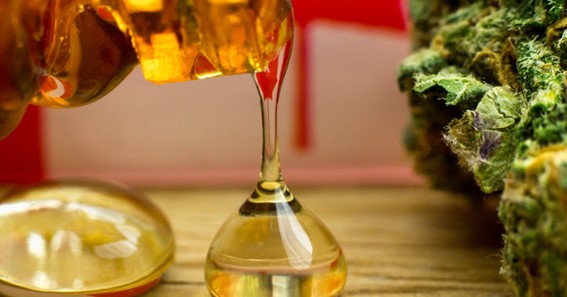Are you curious to know what is a distillate? You have come to the right place as I am going to tell you everything about a distillate in a very simple explanation. Without further discussion let’s begin to know what is a distillate?
In recent years, distillates have emerged as a sought-after and versatile extract used in a wide range of industries. From the realm of cannabis to essential oils and beyond, distillates have gained popularity due to their purity, potency, and diverse applications. But what exactly is a distillate? In this article, we will delve into the world of distillates, exploring their definition, production process, applications, and the reasons behind their growing popularity.
What Is A Distillate?
At its core, a distillate is a concentrated substance that results from a process called distillation. Distillation involves heating a liquid or mixture to vaporize its components and then cooling the vapor to condense it back into a liquid form. This process allows for the separation and purification of specific compounds, resulting in a highly concentrated and refined extract known as a distillate.
Production Process:
The production of distillates typically involves the following steps:
- Extraction: The process begins with extracting the desired compounds from the source material. This can involve methods like steam distillation, solvent extraction, or CO2 extraction, depending on the specific application and desired outcome.
- Purification: The extracted material undergoes further purification through processes like filtration or chromatography to remove impurities, undesirable compounds, and any remaining solvents.
- Distillation: The purified extract is then subjected to distillation. Through controlled heating and cooling, specific compounds are isolated and concentrated, resulting in a highly pure and potent distillate.
Applications Of Distillates:
- Cannabis Industry: In the realm of cannabis, THC (tetrahydrocannabinol) and CBD (cannabidiol) distillates have gained significant popularity. THC distillates are highly potent and prized for their psychoactive effects, while CBD distillates offer therapeutic benefits without the intoxicating effects. These distillates serve as key ingredients in edibles, vape cartridges, tinctures, and various other cannabis-infused products.
- Essential Oils: Distillation plays a vital role in the production of essential oils. Through steam distillation, aromatic compounds are extracted from plants, capturing their unique scents and therapeutic properties. Essential oil distillates find application in aromatherapy, natural perfumes, skincare products, and holistic wellness practices.
- Alcohol And Spirits: Distillates are integral to the production of alcoholic beverages, particularly spirits like whiskey, vodka, rum, and gin. Through the distillation of fermented grains, fruits, or botanicals, the desired alcoholic components are concentrated, resulting in flavorful and refined spirits.
- Fragrances And Perfumes: Distillates find their way into the fragrance industry, serving as essential components in perfumes, colognes, and personal care products. These distillates capture the essence of botanicals, providing aromatic profiles and enhancing the overall sensory experience.
Growing Popularity:
The increasing popularity of distillates can be attributed to several factors:
- Potency And Purity: Distillates are known for their high potency and purity, making them desirable for applications that require precise dosing and consistent quality.
- Versatility: Distillates offer versatility in terms of their applications across various industries, providing concentrated and refined extracts that can be utilized in a wide range of products.
- Controlled Effects: In the case of cannabis distillates, the ability to isolate specific cannabinoids allows for controlled and targeted effects, appealing to both recreational and medicinal consumers.
Conclusion:
Distillates are concentrated extracts that result from the distillation process, offering purity, potency, and versatility. Whether in the cannabis industry, essential oils, alcoholic beverages, or fragrances, distillates have found their way into a multitude of applications. As the demand for high-quality and refined extracts continues to rise, distillates remain at the forefront, providing a glimpse into the realm of concentrated excellence and endless possibilities.
Gather more information like this on Resettgo
FAQ
Does Distillate Get You Higher?
THC distillate is not for the inexperienced cannabis user. The high potency of the product is unmatched by most other concentrates, which means you are going to experience a more intense high with much less product.
What Does A Distillate Do?
Distillate is mainly used in vapes, in edibles, or consumed as a liquid dropper-style. Since the terpenes, or flavors, of the oil, have been reduced during distillation, the taste can be manipulated to be more appealing to customers.
What Does Distillate Mean In Vapes?
Distillate is the base ingredient for most vape cartridges, as the most common forms of distillate are THC oil and CBD oil. The term distillate refers to the cannabis purification process, wherein the cannabinoid is separated into a unique product, and other compounds are removed.
What Does Distillate Mean In Cbd?
CBD Distillate is a golden, viscous oil that typically contains around 70-80% CBD. The distillate is a highly refined extract that has undergone distillation,a process to remove certain cannabinoids from the original full-spectrum oil.
I Have Covered All The Following Queries And Topics In The Above Article
What Is A Distillate
What Is A Distillate Cartridge
What Is A Distillate Syringe
What Is A Thc Distillate
What Is A Distillate Dart
What Is A Cannabis Distillate
What Is A Distillate Dablicator
What Is A Distillate
What is the definition of a distillate
What is the definition of a distillate
